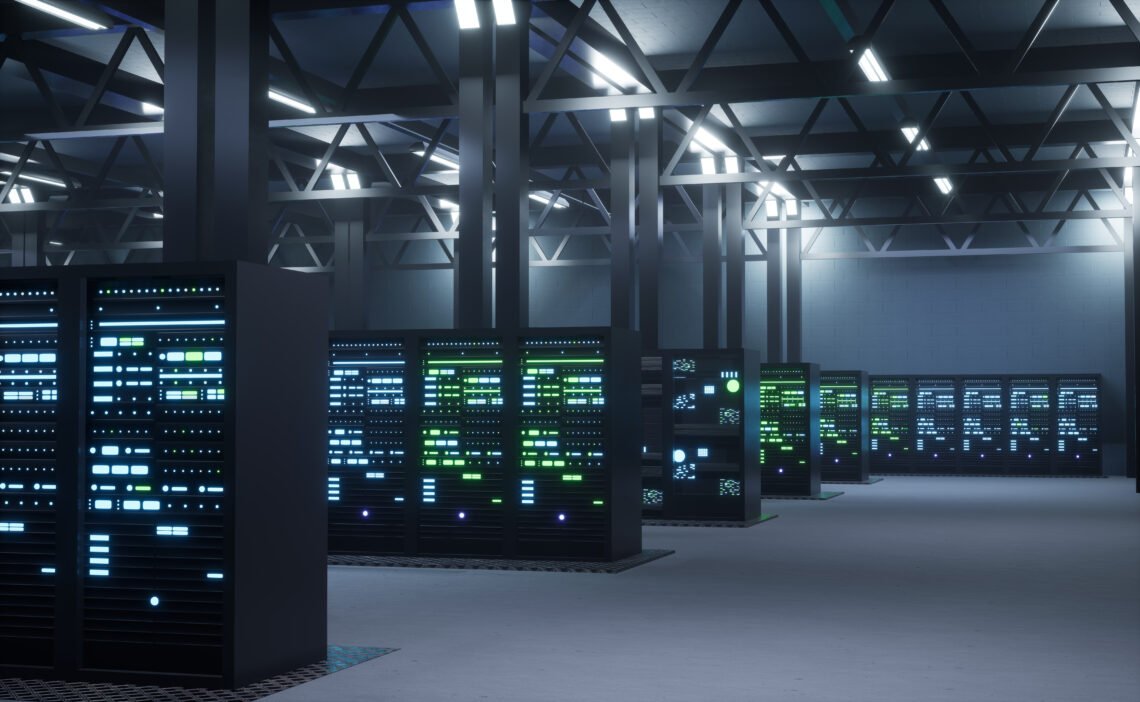Choosing the right web hosting for your website is one of the most important decisions for long-term success. If you have a busy website or run applications that demand lots of resources, a dedicated server can often be the best option.
But what exactly is a dedicated server, and how does it work? These are common questions.
In this guide, we’ll break down dedicated server hosting in simple terms—what it is, why it matters, and who benefits most from using it.
What Is a Dedicated Server?
At its core, the concept is simple: exclusivity. A dedicated server is a physical machine that belongs entirely to one client. Instead of sharing resources with hundreds of other users, you get the whole server to yourself.
Think of it like renting an entire office building for your company rather than a single desk in a crowded coworking space. You have full control, privacy, and guaranteed access to all the resources.
Examining the Hardware: CPU, RAM & Storage
A dedicated server is essentially a powerful computer leased out to just one customer. All the main components—CPU (the processor), RAM (memory), storage, and bandwidth—belong only to you.
The CPU is the brain of the server, handling all the processing work. If you’re running several websites, a CPU with more cores allows them to run smoothly together. For smaller projects, a modest processor may be enough.
RAM is responsible for keeping your site fast and responsive by quickly loading elements and managing tasks. More RAM means better performance, especially for sites with heavy features or large databases.
Storage also matters. Traditional hard drives are slower, while modern SSDs—especially NVMe SSDs—deliver blazing-fast read and write speeds. That translates into quicker page loads, faster queries, and a smoother user experience.
Main Characteristics: Exclusivity & Control
Two features make dedicated hosting stand out:
Exclusive resources: With a dedicated server, all the machine’s power belongs to you. No other website or app can slow you down. This stability makes it ideal for businesses that need reliable performance.
Full control (root access): Most dedicated hosting plans give you root access. This means you can choose your operating system, install custom software, and set up your own security rules. You’re free to build the exact environment you want.
How Do Dedicated Servers Actually Work?
Dedicated servers turn powerful physical hardware into a live presence on the internet. They typically go through four stages:
Step 1: The Physical Machine in a Data Center
Dedicated servers are strong physical systems built for reliability. They’re housed in secure, climate-controlled data centers that provide constant power, cooling, and protection. Inside, you’ll find CPUs, large amounts of RAM, and high-speed SSD storage—everything needed for peak performance.
Step 2: The Software (Operating System)
After the hardware is ready, an operating system is installed—usually Linux (like Ubuntu or CentOS) or Windows Server. The OS manages the hardware and allows you to add tools such as Apache, Nginx, or a control panel.
Step 3: Connecting to the World (Network & IP Address)
Next, the server connects to the data center’s high-speed network and gets a unique IP address. This IP acts like the server’s “home address,” making it possible for anyone in the world to reach your website. Strong bandwidth and uptime guarantees ensure smooth performance. Using a CDN can make things even faster and more reliable.
Step 4: Management & Maintenance
Once everything is running, the server must be maintained. Here, you have two choices:
-
Unmanaged hosting: You take care of everything, including software updates, backups, and security. This option is best for experienced users or businesses with IT teams.
-
Managed hosting: The hosting provider handles setup, monitoring, updates, and support. This way, you enjoy the server’s power without worrying about day-to-day technical tasks.
How Is a Dedicated Server Different from Other Types of Web Hosting?
To understand the real value of a dedicated server, it helps to compare it with other common hosting types.
Shared hosting: Hundreds of websites run on the same machine, sharing CPU, RAM, and storage. It’s affordable but limited in performance.
VPS (Virtual Private Server): A VPS gives you a private environment using virtualization, but the physical hardware is still shared with other users. It offers more stability than shared hosting but less than dedicated.
Dedicated hosting: All resources belong to you. This means maximum performance, reliability, and control, without worrying about other users.
What to Consider When Choosing Your Dedicated Server
Upgrading to a dedicated server is a big step. To make the right choice, focus on these factors:
Hardware Specs & Location
The hardware powers your server. Match the resources to your actual needs, rather than just choosing the most expensive plan.
-
CPU: Go for a multi-core processor if you run heavy applications, large databases, or busy websites. A simpler CPU may be fine for lighter needs.
-
RAM: At least 8GB is recommended for eCommerce, streaming, or hosting multiple sites.
-
Storage: NVMe SSDs are the best choice for fast, responsive performance.
-
Location: Pick a server close to your target audience to reduce latency and improve speed.
Bandwidth & Scalability
-
Bandwidth: This is the amount of data moving in and out of your server. For high-traffic sites, choose a plan with plenty of bandwidth—or unlimited traffic—to avoid slowdowns or surprise costs.
-
Scalability: Your needs will grow over time. Choose a host that makes it easy to upgrade RAM, storage, or even switch to a stronger server.
Conclusion
Dedicated server hosting is one of the smartest investments a growing business can make. Unlike shared hosting or even VPS plans, a dedicated server gives you complete ownership of resources—the CPU, RAM, storage, and bandwidth are entirely yours. This exclusivity guarantees reliable performance, no matter how much traffic your website receives or how demanding your applications become. For businesses that rely heavily on their online presence, this level of control and stability can make all the difference.
One of the biggest advantages of dedicated hosting is scalability. Many businesses start with shared hosting because it’s affordable and easy to set up. It works fine in the beginning when traffic is low. As the business grows, some move to VPS hosting, which offers more power and privacy, but resources are still limited because the server is shared with others. Eventually, though, a point comes when these options can no longer keep up. That’s when a dedicated server becomes the natural next step.
With a dedicated server, you can handle high volumes of traffic without slowing down. For example, an online store during the holiday shopping season can experience sudden spikes in visitors. On shared or VPS hosting, that could lead to performance issues or downtime. A dedicated server eliminates this risk by ensuring all resources are focused solely on your website. This stability is essential for eCommerce stores, SaaS platforms, media websites, or any online project where performance directly impacts revenue.
Another important benefit is flexibility. Most dedicated hosting plans come with full root access, meaning you can install and configure the software you want, choose your operating system, and apply your own security measures. This level of customization is especially useful for businesses with unique technical requirements or strict compliance needs.





